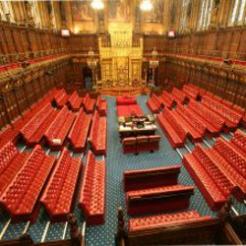A proposed amendment to the EU Referendum Bill today will force the UK’s three charity regulators to issue joint guidance with the Electoral Commission, to clarify the rules around campaigning by charities in the run-up to the EU referendum.
The proposed amendment, which will be debated in the House of Lords today, calls for the Electoral Commission to issue “joint guidance confirming the principles that apply to the engagement of charities with the referendum”, in collaboration with the Charity Commission for England and Wales, the Charity Commission for Northern Ireland and the Office of the Scottish Charity Regulator.
Charity law currently allows charities to campaign if it furthers their objects and does not seek to support political parties or candidates. But campaigning guidance on the EU referendum by the three UK charity regulators is not currently consistent, the briefing states.
“There are clear areas of difference in the approaches taken by the two regulators, which would helpfully be clarified by joint guidance,” the briefing by Bates Wells Braithwaite partners Simon Steeden and Rosamund McCarthy says.
The briefing states that although Scottish regulator OSCR’s current guidance on the referendum is “detailed, practical and clearly delineates the principles which apply to charitable engagement with referendums”, it does not “expressly apply to the EU referendum”.
Similarly, the Charity Commission’s guidance was produced several years ago and is “not sufficiently clear about the scope for charitable involvement in the EU referendum campaign”, according to Steeden and McCarthy.
A single set of rules would “create a level playing field across the UK and provide clarity for charities registered with more than one of the regulators,” it says.
Proposals for the new guidance will be based on the “tried and tested” model of charity guidance for the Scottish referendum.
Last month, Steeden said in a blog for Civil Society News that more clarity was needed from the Charity Commission before a referendum on whether Britain should continue to remain a member of the EU.
But the regulator responded that his was an “alarmist contribution” and that most charities understand the need for balance.
Sarah Atkinson, director of policy and communications at the Charity Commission, said: “We are aware of the proposed amendment. It was always our intention to work with the Electoral Commission to promote charities’ awareness and understanding of the existing guidance and we are meeting them shortly. UK charity regulators will also be discussing these issues this week at our annual conference.”
The date of an EU referendum has not yet been set, but it is expected to take place in 2017.
In a statement to Civil Society News, the chief executive of Acevo, Sir Stephen Bubb called for charities to support the amendment.
"Whatever the outcome of the referendum it will be critical to the future of the delivery and funding of public services," he said. "Charities are entitled to a view on this decision. Charities are integral to the fabric of society and represent many voiceless communities and people and must be free to speak out.”









